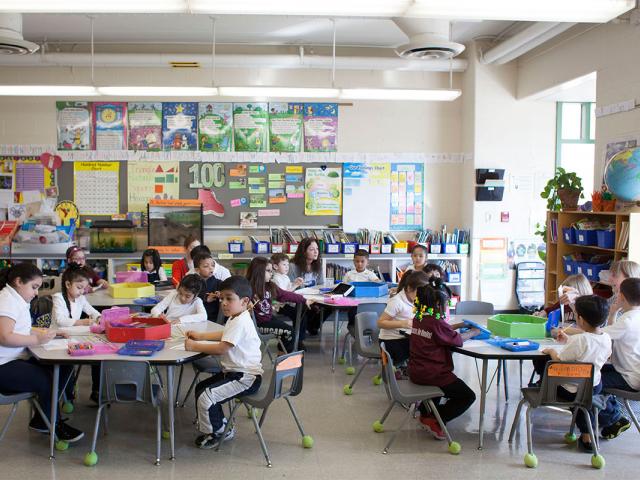Libraries have long been cherished as sanctuaries of knowledge, where the written word takes center stage. In an increasingly digital world, their importance has not diminished; rather, libraries have evolved to offer more than just books. They have become dynamic centers of learning, community, and literacy. In this blog post, we’ll explore the enduring power of reading and how libraries continue to play a crucial role in promoting literacy and lifelong learning.
Libraries as Literary Sanctuaries
Libraries have always been places where books take precedence. The rows upon rows of bookshelves, filled with a diverse array of titles, beckon readers to explore new worlds, gather knowledge, and embark on adventures without ever leaving the building. Here are some ways in which libraries nurture literacy through their collection of books:
1. Access to a Vast Collection
Libraries house a vast and diverse collection of books, catering to readers of all ages, interests, and backgrounds. This wide selection encourages readers to explore different genres, perspectives, and topics, broadening their horizons and fostering a love for reading.
2. Encouragement for Young Readers
Libraries play a vital role in promoting literacy among young children. Through programs like story hours, reading challenges, and summer reading initiatives, libraries engage young minds, instill a love for books, and help children develop essential reading skills.
3. Support for Adult Literacy
Libraries also offer resources for adult learners, including books and materials geared toward improving literacy and language skills. Adult literacy programs and one-on-one tutoring sessions help individuals build the confidence and abilities necessary for success in today’s world.
4. Lifelong Learning
Libraries emphasize the idea that learning is a lifelong journey. By providing a wealth of non-fiction books, research materials, and online resources, libraries encourage adults to continue expanding their knowledge and skills throughout their lives.

Beyond Books: Libraries as Learning Hubs
While libraries are renowned for their book collections, they have evolved into multifaceted learning hubs that offer a broad spectrum of resources and services. Here are some ways in which libraries promote learning beyond books:
1. Digital Resources
Libraries now provide access to a vast array of digital resources, including e-books, audiobooks, online courses, and digital magazines. These resources are accessible from anywhere with an internet connection, making learning more flexible and convenient than ever.
2. Public Computers and Wi-Fi
Libraries bridge the digital divide by offering free access to computers and Wi-Fi for those who may not have these resources at home. This access is vital for job seekers, students, and anyone in need of online information or communication.
3. Educational Programs
Libraries organize a wide range of educational programs and workshops for all ages. From coding classes for kids to financial literacy seminars for adults, these programs empower individuals with valuable skills.
4. Homework Help
Many libraries offer homework help and tutoring services, providing students with academic support and a quiet place to study. These resources are particularly beneficial for students who may not have access to private tutors or study spaces.
5. Cultural and Community Events
Libraries host cultural events, author talks, and community gatherings that promote learning in various forms. These events encourage dialogue, critical thinking, and the exchange of ideas among community members.
Libraries as Community Connectors
In addition to fostering literacy and learning, libraries serve as community connectors. They bring people together, create social bonds, and strengthen the sense of belonging within a neighborhood or town. Here’s how libraries contribute to community building:
1. Meeting Spaces
Libraries often provide meeting rooms and spaces that can be reserved by local organizations, clubs, or individuals. These spaces serve as hubs for community meetings, discussions, and collaboration.
2. Cultural Enrichment
Through art exhibitions, music performances, and cultural programs, libraries enrich the cultural landscape of their communities. They provide opportunities for residents to engage with the arts and celebrate local talents.
3. Outreach Programs
Many libraries have outreach programs that extend their services beyond their physical locations. These programs reach underserved populations, such as seniors, the disabled, and those in remote areas, ensuring that everyone has access to learning opportunities.
4. Local History and Heritage
Libraries often house local history collections, preserving the heritage and memories of the community. These collections help residents connect with their roots and understand their town’s evolution over time.
5. Social Engagement
Libraries are places where people from all walks of life come together. Whether it’s a book club, a knitting circle, or a language exchange group, libraries facilitate social engagement and the formation of lasting friendships.
The Future of Libraries in the Digital Age
In the digital age, libraries have embraced technology and adapted to changing reading habits. E-books and audiobooks can be borrowed online, and digital platforms offer access to vast databases and educational resources. While these digital offerings complement traditional library services, the essence of libraries as community hubs of learning and literacy remains unchanged.
Libraries continue to evolve, finding innovative ways to serve their communities. Some libraries have incorporated maker spaces, where patrons can explore technology, create art, or engage in hands-on learning. Others have become centers for job seekers, offering resume workshops and job fairs. These adaptations demonstrate libraries’ unwavering commitment to empowering individuals and strengthening communities.
In Conclusion
The power of reading and learning knows no bounds, and libraries stand as beacons of enlightenment and community like Quincy Public Library. They provide access to a world of knowledge, foster literacy in all its forms, and serve as vital community hubs. As we navigate an ever-changing world, let us not forget the enduring value of libraries and the transformative impact they have on individuals and society as a whole. By supporting and engaging with our local libraries, we contribute to the enrichment of our lives and the empowerment of our communities, ensuring that the love of reading and learning continues to thrive for generations to come.

